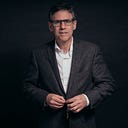Member-only story
How Remote Work Could Destroy Silicon Valley
The tech industry is built on serendipity. If workers flee the Bay Area, what’s left?
There may be no richer Silicon Valley lore: It was 2004, Mark Zuckerberg’s summer of craziness. At 20, he and five buddies had rented a Palo Alto home, where they partied and wrote code for Facebook. One day, as Zuckerberg and the guys were strolling the neighborhood, he saw a familiar face. It was Sean Parker, the co-founder of Napster, the music sharing service. By coincidence, Parker, at loose ends and contemplating his next move, was staying at his girlfriend’s parents’ house, just up the street from the Facebook pad. The very next week, the big-thinking, smooth-talking Parker moved in with Zuckerberg and began introducing him around Silicon Valley. By the end of the summer, he had paved the way to Facebook’s first big investment — $500,000 from Peter Thiel.
Thiel, who grew up in Silicon Valley and graduated from Stanford, had only recently landed a substantial payday himself. It went back to a providential lecture he delivered in 1998 at Stanford. One of the half dozen or so people present was a 23-year-old Ukrainian immigrant named Max Levchin — not a student, but a newcomer from Illinois who was there mostly to bask in the air conditioning and escape the sweltering summer heat. Afterward…

